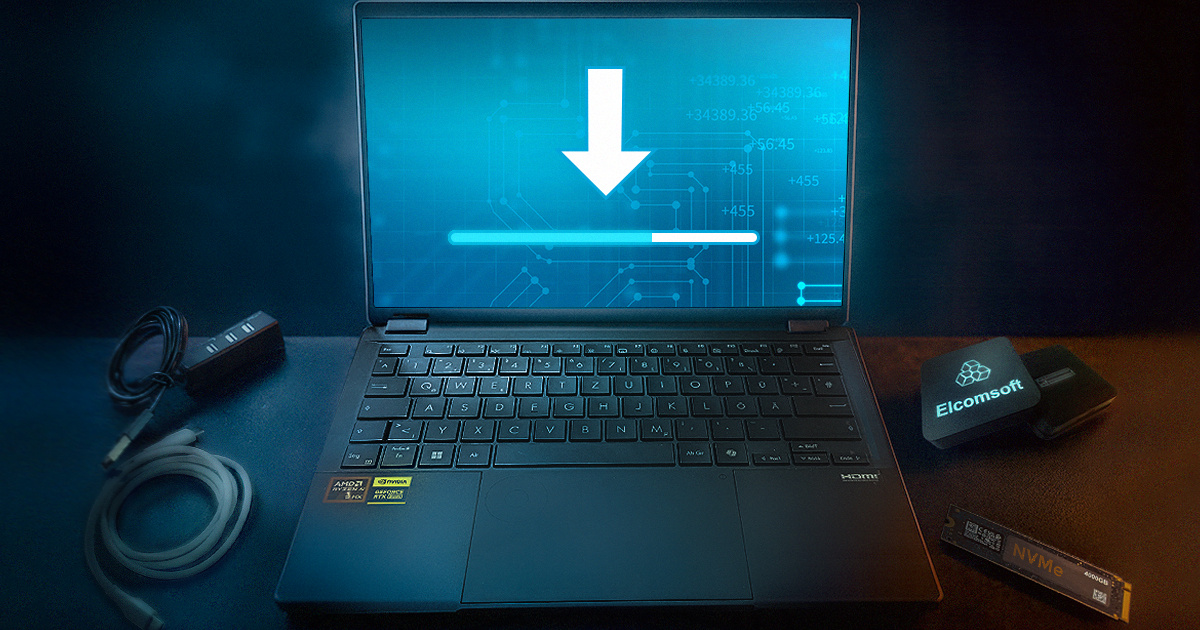If you are working in the area of digital forensics, you might have wondered about one particular thing in the marketing of many forensic solutions. While most manufacturers are claiming that their tools are easy to use and to learn, those very same manufacturers offer training courses with prices often exceeding the cost of the actual tools. Are these trainings necessary at all if the tools are as easy to use as the marketing claims?
Full-disk encryption presents an immediate challenge to forensic experts. When acquiring computers with encrypted system volumes, the investigation cannot go forward without breaking the encryption first. Traditionally, experts would remove the hard drive(s), make disk images and work from there. We are offering a faster and easier way to access information required to break full-disk system encryption by booting from a flash drive and obtaining encryption metadata required to brute-force the original plain-text passwords to encrypted volumes. For non-system volumes, experts can quickly pull the system’s hibernation file to extract on-the-fly encryption keys later on with Elcomsoft Forensic Disk Decryptor.
There has been a lot of noise regarding GrayKey news recently. GrayKey is an excellent appliance for iOS data extraction, and yes, it can help access more evidence. As always, the devil is in the detail.

In our previous article Why SSDs Die a Sudden Death (and How to Deal with It) we talked about SSD endurance and how it’s not the only thing affecting real life reliability. In that article, we assumed that manufacturers’ specifications of certain SSD models remain similar for a given SSD model. In fact, this is not the case. Quite a few manufacturers play tricks with consumers, releasing a certain SSD model with top notch specifications only to downgrade them at some point during the production cycle (but certainly after receiving its share of glowing reviews). While some OEMs do note the change at least in the revision number, the rest will just quote the small print allowing them to “change specifications at any time without prior notice”. We’ve seen well known SSD manufacturers switching from reliable MLC NAND to planar TLC trash within the same model (and zero notice to potential buyers). How can you tell which NAND configuration your particular SSD drive employs and whether or not it lives up to your expectations? Read along to find out.
Many thanks to Roman Morozov, ACELab technical support specialist, for sharing his extensive knowledge and expertise and for all the time he spent ditching bugs in this article.
WhatsApp remains one of the most popular instant messengers. With more than 1.5 billion users and about half billion daily active users, WhatsApp sends over 100 billion messages per day. WhatsApp is secure thanks to end-to-end encryption to make intercepted messages impossible to decrypt. While this is great news to consumers and privacy advocates, it is also bad news for the law enforcement. Once an expert accepts to access the suspect’s WhatsApp communication history, they will struggle with the encryption and demand for a vendor-provided backdoor (WhatsApp: The Bad Guys’ Secret Weapon).
Some 22 years ago, Microsoft made an attempt to make Windows more secure by adding an extra layer of protection. The SAM Lock Tool, commonly known as SYSKEY (the name of its executable file), was used to encrypt the content of the Windows Security Account Manager (SAM) database. The encryption was using a 128-bit RC4 encryption key.
The boom in personal electronic devices recording literally every persons’ step introduced a new type of forensic evidence: the digital evidence. In this day and age, significantly more forensic evidence is available in digital form compared to physical evidence of yesteryear. Are law enforcement and intelligence agencies ready to handle the abundance of digital evidence? And more importantly, do frontline officers have the skills and technical expertise required to handle and preserve this wealth of information?
An update to Google Play Services enables manual Google Drive backup option on many Android handsets. Since Android 6.0, Android has had an online backup solution, allowing Android users back up and restore their device settings and app data from their Google Drive account. Android backups were running on top of Google Play Services; in other words, they were always part of Google Android as opposed to being part of Android Open Source. Unlike iOS with predictable iCloud backups and the manual “Backup now” option, Google’s backup solution behaved inconsistently at best. In our (extensive) tests, we discovered that the first backup would be only made automatically on the second day, while data for most applications would be backed up days, if not weeks after the initial backup. The ability to manually initiate a backup was sorely missing. (more…)
If you are involved with iOS forensics, you have probably used at least one of these modes. Both DFU and Recovery modes are intended for recovering iPhone and iPad devices from issues if the device becomes unusable, does not boot or has a problem installing an update.


